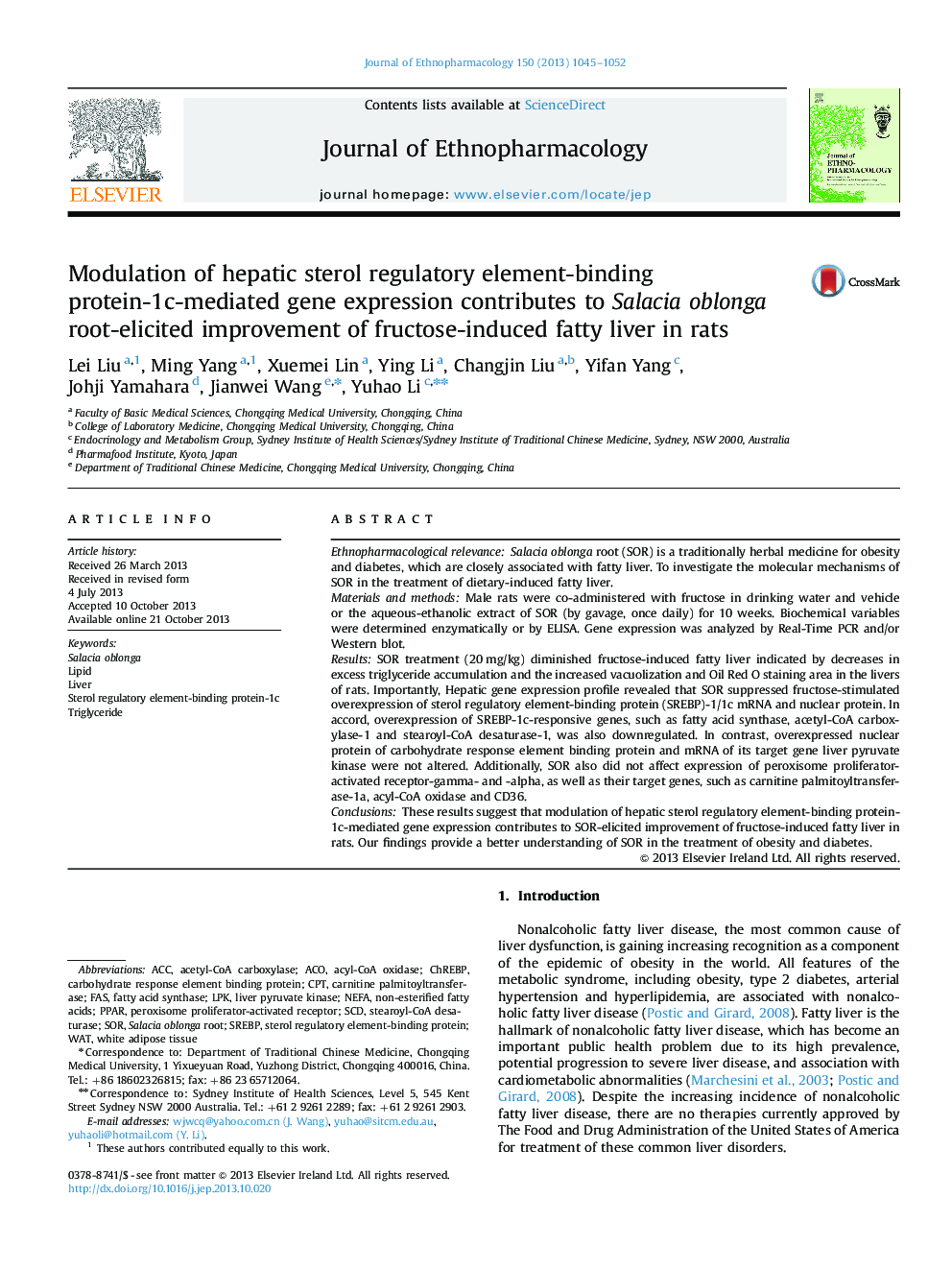| Article ID | Journal | Published Year | Pages | File Type |
|---|---|---|---|---|
| 2545346 | Journal of Ethnopharmacology | 2013 | 8 Pages |
Ethnopharmacological relevanceSalacia oblonga root (SOR) is a traditionally herbal medicine for obesity and diabetes, which are closely associated with fatty liver. To investigate the molecular mechanisms of SOR in the treatment of dietary-induced fatty liver.Materials and methodsMale rats were co-administered with fructose in drinking water and vehicle or the aqueous-ethanolic extract of SOR (by gavage, once daily) for 10 weeks. Biochemical variables were determined enzymatically or by ELISA. Gene expression was analyzed by Real-Time PCR and/or Western blot.ResultsSOR treatment (20 mg/kg) diminished fructose-induced fatty liver indicated by decreases in excess triglyceride accumulation and the increased vacuolization and Oil Red O staining area in the livers of rats. Importantly, Hepatic gene expression profile revealed that SOR suppressed fructose-stimulated overexpression of sterol regulatory element-binding protein (SREBP)-1/1c mRNA and nuclear protein. In accord, overexpression of SREBP-1c-responsive genes, such as fatty acid synthase, acetyl-CoA carboxylase-1 and stearoyl-CoA desaturase-1, was also downregulated. In contrast, overexpressed nuclear protein of carbohydrate response element binding protein and mRNA of its target gene liver pyruvate kinase were not altered. Additionally, SOR also did not affect expression of peroxisome proliferator-activated receptor-gamma- and -alpha, as well as their target genes, such as carnitine palmitoyltransferase-1a, acyl-CoA oxidase and CD36.ConclusionsThese results suggest that modulation of hepatic sterol regulatory element-binding protein-1c-mediated gene expression contributes to SOR-elicited improvement of fructose-induced fatty liver in rats. Our findings provide a better understanding of SOR in the treatment of obesity and diabetes.
Graphical abstractFigure optionsDownload full-size imageDownload high-quality image (155 K)Download as PowerPoint slide
